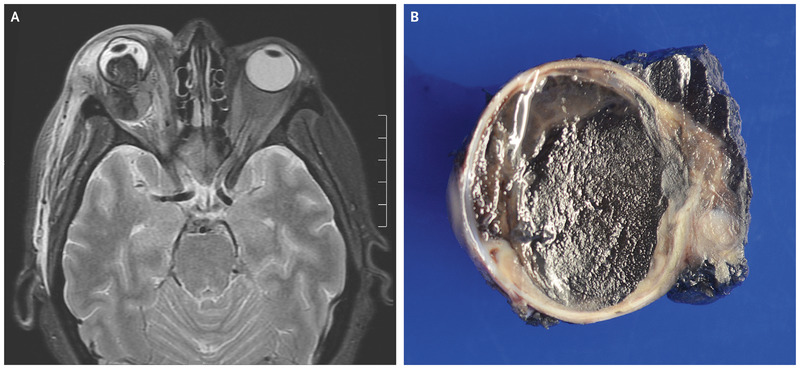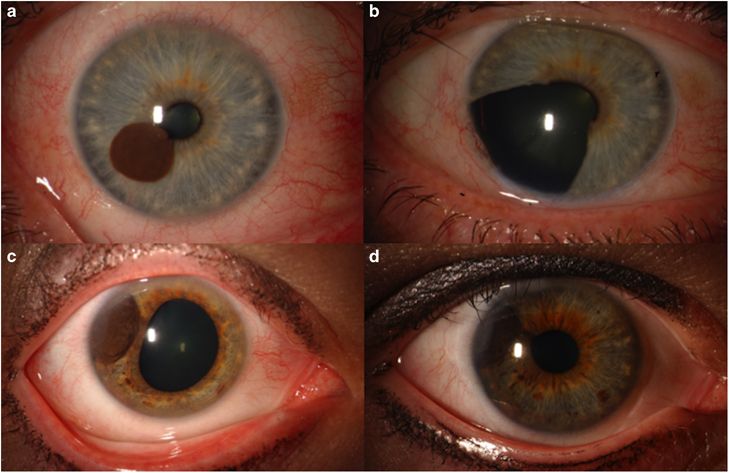Iris cancer is a relatively rare disease - but it can be deadly. The medical world knows it as uveal melanoma - the uvea being the layer of the eye that includes the iris, ciliary body (the muscles that control the shape of our eye lens) and choroid (where the blood vessels are).
The uvea plays an important role in our ability to see - it controls how much light is let in by adjusting the lens size and reducing light reflection within the eye with the iris's highly pigmented cells.
 Parts of the uvea are highlighted in blue. (Henry Vandyke Carter/Gray's Anatomy, Plate 869/Public Domain)
Parts of the uvea are highlighted in blue. (Henry Vandyke Carter/Gray's Anatomy, Plate 869/Public Domain)
But as with any cell in the body, sometimes things can go very, very wrong.
A recent case report of uveal melanoma was just published in the New England Journal of Medicine: A woman presented in an emergency department after just four days of pain and inflammation in her right eye.
She had been blind in that eye for several years, and the report doesn't mention if or how that had been investigated, but a magnetic resonance image below reveals what they found - and what the eye looked like when they removed it.
 (Everett & Copperman, N Engl J Med, 2019)
(Everett & Copperman, N Engl J Med, 2019)
Treatments for uveal melanoma include iridectomy - removal of part of the iris, which you can see in the image below on the right side.
As we mentioned, in this case the patient's right eye was removed completely to provide her with some relief, and the 2.8 by 2.5 centimetre (around one by one inch) mass was sent for testing.
Unfortunately, as with 50 percent of patients that present with eye cancers, this patient had already developed metastatic cancer. Doctors Lesley Everett and Thomas Copperman described how tumours had spread to her liver, lymph nodes, and other organs. The patient passed away just two months after diagnosis.
Studies that link eye cancer with UV exposure have been inconclusive so far. Still, it's safest to wear eye protection - ensure your lenses have UV coating if you wear glasses every day and keep a pair of high protection sunglasses handy for any extended time in the sun.
But most importantly, keep up to date with your optometry appointments. As with any cancer, early detection gives you the best chance of overcoming this disease.
The case was published in the New England Journal of Medicine.

